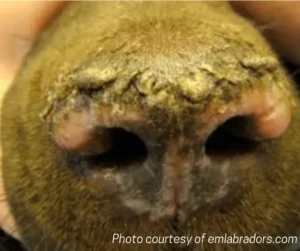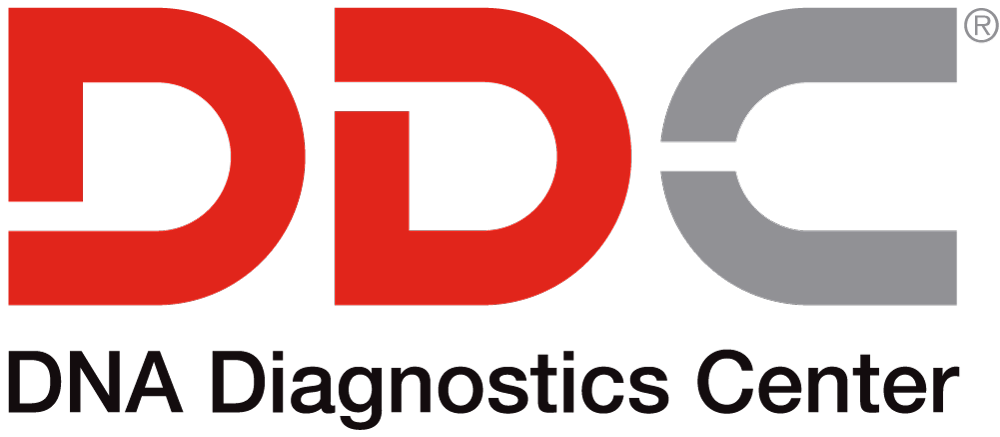MARCH 2, 2020
Facts about HNPK in Dogs

According to the AKC, 2021 marked the 30th year in a row that Labrador Retrievers were the most popular dog breed in the United States. And why not? Whether you prefer yellow, chocolate, or black, Labs make amazing family playmates, hunting companions, service dogs, and best buddies. In addition to all their positive and loving qualities, however, the Labrador Retriever is the only breed known to inherit a genetic disease known as HNPK. Here are the facts about HNPK in dogs—Hereditary Nasal Parakeratosis.
What is HNPK in Dogs?
HNPK in dogs is a hereditary disease in which a genetic mutation is passed from parent to pup. Signs of the disease generally become apparent in young dogs that are 6 months to 1 year old. Affected dogs have dry, rough, brown or grey crusts that develop on the surface of and along the edges of the nose. You may also notice bumps.
What are the Symptoms of HNPK?
- Dry, crusty nose
- May have bumps or lesions on the nose
- Pigmentation loss in the nose
- Chronic bacterial infections in the nasal area (if topical therapy is not applied early)
HNPK is not a fatal condition, but affected dogs suffer discomfort and pain if symptoms are left untreated.

Which Dog Breeds are Affected by HNPK?
Breeds in which the HNPK mutation has been identified:
- Labrador Retriever
Can HNPK be Prevented?
Unfortunately, HNPK cannot be prevented in Labradors who inherit two copies of the SUV39H2 mutation from their parents.
FOR BREEDERS: If you are a breeder, the best thing you can do for the future of your breed is to have a dog DNA test for HNPK performed and then remove any affected animals from the breeding pool.
FOR PET OWNERS: If you see signs of HNPK in your young dog, an immediate visit to the vet for diagnosis and to start a treatment regimen ASAP is your best course of action. If you are interested in getting a Lab puppy, be sure to ask your breeder if they perform HNPK screening if they do not feature this information on their website.
Is Your Dog at Risk? A Dog DNA Test for HNPK Can Tell You
There are 3 possible genotypes reported for HNPK by our accredited DDC Veterinary laboratory:
CLEAR: those having 2 copies of the normal allele and appear to be normal
CARRIER: those having 1 copy of the normal allele and 1 copy of the HNPK mutation but appear to be normal
AT RISK: those having 2 copies of the HNPK mutation and will likely show clinical signs of HNPK

What is the Treatment for HNPK?
There is no known cure, but owners can manage symptoms with veterinarian-prescribed topical therapy. If treatment is delayed, dogs can develop bacterial infections in the nasal area, requiring antibiotics.
The Tip of the Tail
If you breed or own Labrador Retrievers, it makes sense to have their DNA tested for HNPK in dogs at an early age. With responsible breeding practices, it may be possible to eradicate this disease in this marvelous breed for good.
About DNA Diagnostics Center (DDC)
DNA Diagnostic Center is the world leader in paternity and relationship testing. We serve healthcare professionals, government agencies, and individuals around the world to determine family relationships with trusted accuracy.
More Questions? Don’t hesitate to call us: we’re here to help!
CALL NOW




